This article is reviewed, corrected, and approved by: Dr. Benjamin McLean M.D. | FCPS | FRCP | MPH
Before we delve into the best teas to enhance blood circulation, let's take a moment to understand why it matters. Blood circulation plays a crucial role in maintaining optimal health and well-being. It ensures the delivery of oxygen, nutrients, and hormones to all parts of the body while removing waste products and toxins. Improved blood circulation contributes to better cardiovascular health, increased energy levels, enhanced cognitive function, and overall vitality.
What is Blood Circulation
Blood circulation refers to the rhythmic pumping of blood by the heart and the intricate network of blood vessels that transport blood to all body parts. It is a complex system that maintains the equilibrium necessary for the body's proper functioning.
The continuous flow of blood throughout the body is an absolutely crucial process that must be maintained at all times. Such as delivering oxygen, nutrients, hormones, and other essential substances to various organs, tissues, and cells. All of these work together to help distribute important substances like oxygen throughout the body.
Factors Affecting Blood Circulation

There are some factors that might affect our blood circulation system. Those are
- Smoking: Tobacco use and smoking can constrict blood vessels and reduce blood flow.
- Diet: High intake of saturated fats, cholesterol, and sodium can contribute to poor circulation.
- Obesity: The presence of additional body mass can cause stress on the cardiovascular system and hinder the circulation of blood.
- Stress: Chronic stress can lead to the constriction of blood vessels and affect circulation.
- Underlying Health Conditions: Conditions such as high blood pressure, diabetes, and peripheral artery disease can impact blood circulation.
- Age: Blood vessels may become less elastic and more narrow with age, affecting blood flow.
- Genetics: Inherited conditions or genetic predispositions can influence blood circulation.
- Medications: Certain medications can affect blood flow or increase the risk of clot formation.
- Lifestyle Choices: Sedentary lifestyle, lack of physical activity, and longer periods of sitting or standing.
- Injury or Surgery: Trauma, surgeries, or injuries can temporarily disrupt blood circulation in affected areas.
- Weather Conditions: Extreme temperatures can affect blood vessel constriction and dilation.
- Hydration Levels: Inadequate hydration can lead to thicker blood and reduced circulation.
- Hormonal Imbalances: Hormonal changes or imbalances can impact blood vessel function.
- Alcohol Consumption: Excessive alcohol intake can cause blood vessel constriction and affect circulation.
- Environmental Factors: Exposure to pollutants or toxins can affect blood flow and circulation.
Teas That Promote Blood Circulation
Teas are a very pleasant and natural way to promote blood circulation. Here are some tea varieties and known for their beneficial effects on circulation:
Green Tea
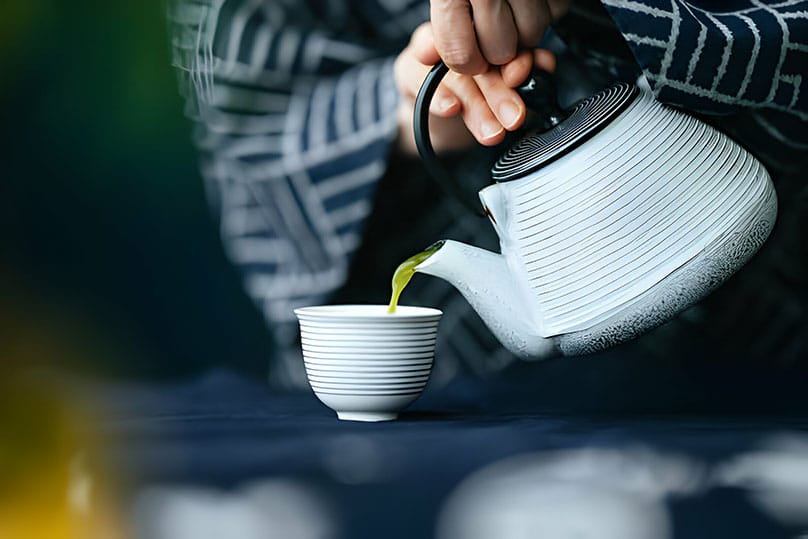
Catechins, a type of antioxidant found in green tea liquid extract, have been proven to enhance blood flow and support healthy blood vessel activity. Regular consumption of green tea may enhance circulation and support cardiovascular health.
Ginger Tea
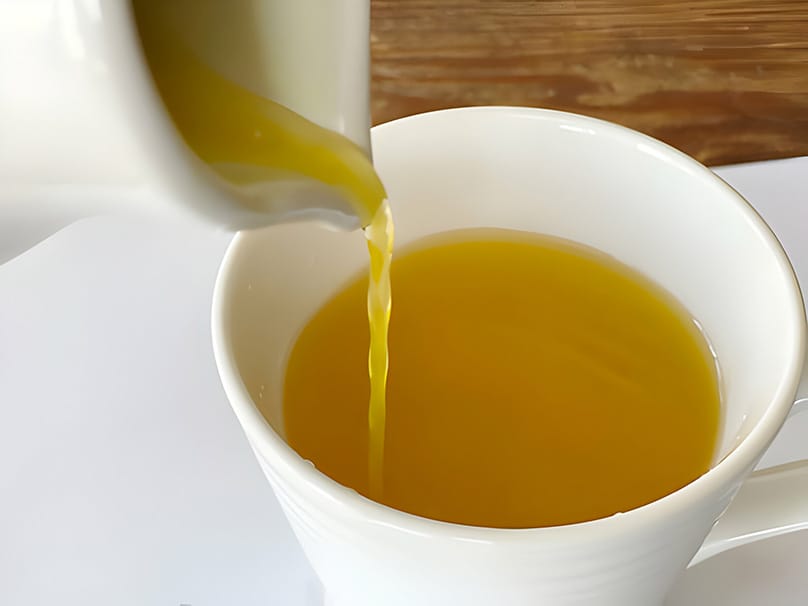
Ginger has long been recognized for its warming properties and its ability to stimulate blood circulation. Ginger contains compounds that can help dilate blood vessels and improve blood flow. Learn more about green tea from here:
Perks of Green Tea and Honey: The Perfect Healthy Blend
Cayenne Pepper Tea
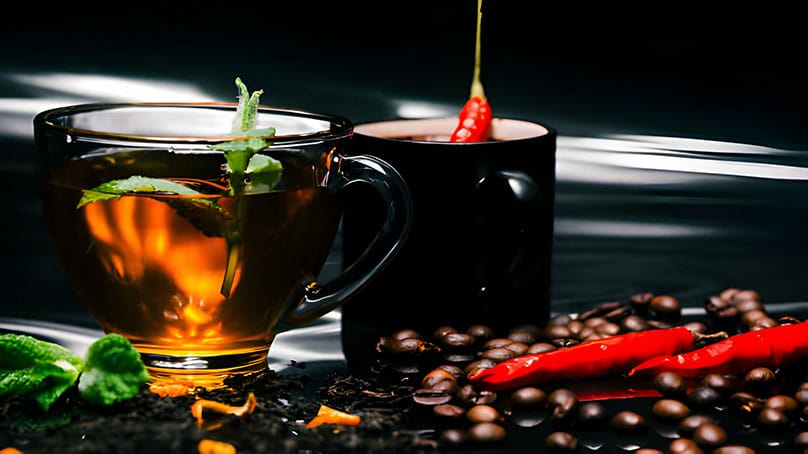
Cayenne pepper contains a compound called capsaicin, which gives it its characteristic heat. Capsaicin has been found to enhance blood flow by promoting vasodilation and reducing the risk of blood clot formation. Drinking cayenne pepper tea in moderation can help improve foot circulation.
Hawthorn Tea
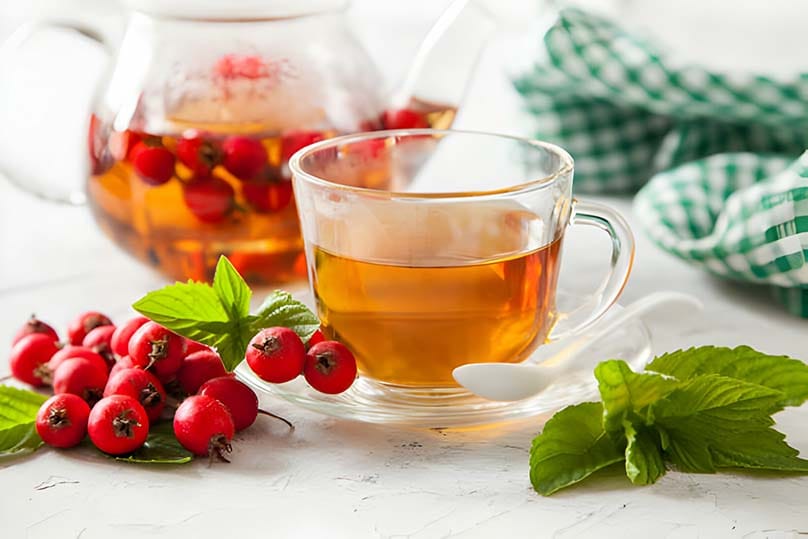
Hawthorn is an herbal tea known for its cardiovascular benefits. It contains flavonoids that can strengthen blood vessels, improve blood circulation, and support heart health. Regular consumption of hawthorn tea may contribute to better overall circulation.
Ginkgo Biloba Tea
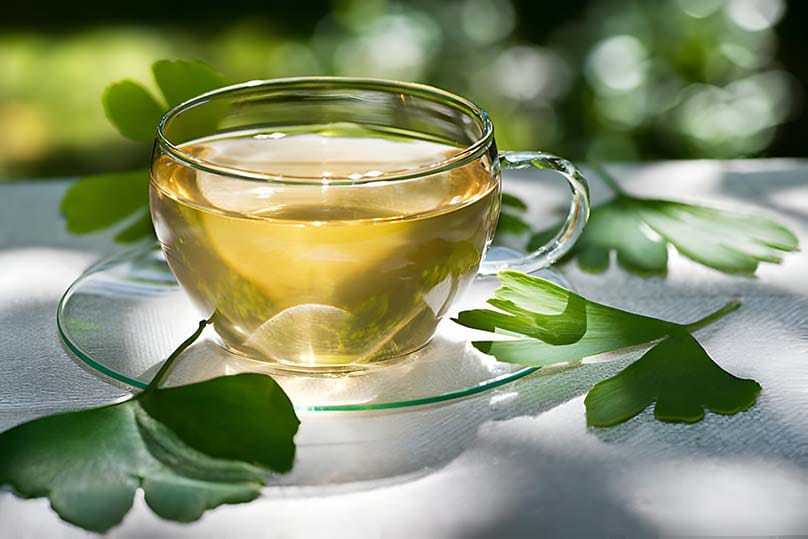
For hundreds of years, people have used Ginkgo biloba in natural medicine to improve memory and thinking abilities. It also promotes blood flow by dilating blood vessels and reducing inflammation. Ginkgo biloba tea can be enjoyed as a natural way to support healthy circulation.
These teas and herbs for blood circulation are quite effective. As we find from some scientific research. The density of blood can significantly impact circulation, and incorporating the best teas for blood circulation into your diet can be a beneficial addition to promoting optimal blood flow and overall cardiovascular health.
Choosing the Best Tea for Blood Circulation
If you want to select the most suitable tea for improving blood circulation, there are some essential factors to keep in mind. To assist you in making a wise decision, here are some useful tips:
Personal Preferences and Taste
Select a tea that appeals to your taste buds and suits your preferences. Whether you enjoy the earthy flavor of green tea, the spiciness of ginger tea, or the warmth of herbal blends, choosing a tea that you genuinely enjoy will encourage regular consumption.
Quality and Source
Opt for high-quality teas that are sourced from reputable sources. Look for teas that are organic and free from pesticides or harmful additives. High-quality teas retain more of their beneficial compounds, ensuring maximum potency and effectiveness.
Exploring Blends and Herbal Combinations
Consider exploring blends and herbal combinations that specifically target blood circulation. Some tea brands offer blends formulated with ingredients like hawthorn, ginger, and ginkgo biloba, which are known to promote healthy circulation. These blends may provide synergistic benefits for blood flow.
Brewing Techniques
Pay attention to brewing techniques to maximize the potential benefits of the tea. Different teas require specific water temperatures and steeping times to bring out their optimal flavors and properties. Follow the recommended instructions for brewing to ensure you're getting the most out of your chosen tea.
Dosage and Frequency
While teas are generally safe for consumption, it's essential to be mindful of dosage and frequency. Adhere to recommended guidelines and listen to your body. Consuming tea in moderation as part of a balanced diet and lifestyle is key.
Remember, while tea can contribute to promoting blood circulation, it is not a standalone solution. It should be considered as part of an overall healthy lifestyle that includes regular exercise, a balanced diet, and other habits that support cardiovascular health.
It's always a good idea for people with health conditions or who take medication to consult with a healthcare practitioner before trying any new herbal teas or remedies. This is to make sure that there are no adverse effects or interactions.
Choose your tea wisely, enjoy the process of brewing and savoring your cup, and let it be a nourishing addition to your journey toward improved blood circulation and overall well-being.
F.A.Q
Q: What vitamins for blood circulation in legs are good?
Ans: Vitamins C, E, K, B3, B6, and B12 are good for blood circulation in the legs.
Q: Can tea affect coronary perfusion pressure?
Ans: It represents the pressure gradient that drives adequate blood flow to the coronary arteries and ultimately supports a healthy cardiovascular system. Understanding coronary perfusion pressure is crucial for evaluating the effectiveness of the best teas for blood circulation.
Q: Is collateral circulation good or bad?
Ans: This could be both bad and good at the same time. When there is a blockage or narrowing in a major muscle and flow of blood vessels, collateral circulation allows for the development of alternative pathways for blood flow. On the other hand, collateral circulation can be seen as a sign of an underlying problem or condition.
Q: What are the top 7 foods that unclog arteries naturally?
Ans: Foods like fish, vegetables, berries, nuts, olive, turmeric, and avocado aid in naturally unblocking arteries
Q: Is nitric oxide supplement good for blood circulation?
Ans: Nitric oxide is a molecule produced naturally in the body that helps relax and widen blood vessels, promoting better blood flow. Advanced BioNutritionals Circ02 is an effective nitric oxide supplement.
Conclusion
Blood circulation is a vital process for maintaining overall health and well-being. If you have poor circulation, you may experience various health problems. Some tea is good for blood circulation. While tea alone cannot solve circulation problems, certain varieties have been found to promote blood flow and support healthy blood vessel activity.
Green tea, ginger tea, cayenne pepper tea, hawthorn tea, and ginkgo biloba tea are known for their beneficial effects on circulation. These teas contain compounds that can enhance blood flow, dilate blood vessels, reduce inflammation, and support heart health. Incorporating these teas into your routine, a balanced diet and an active lifestyle can contribute to better overall circulation.


